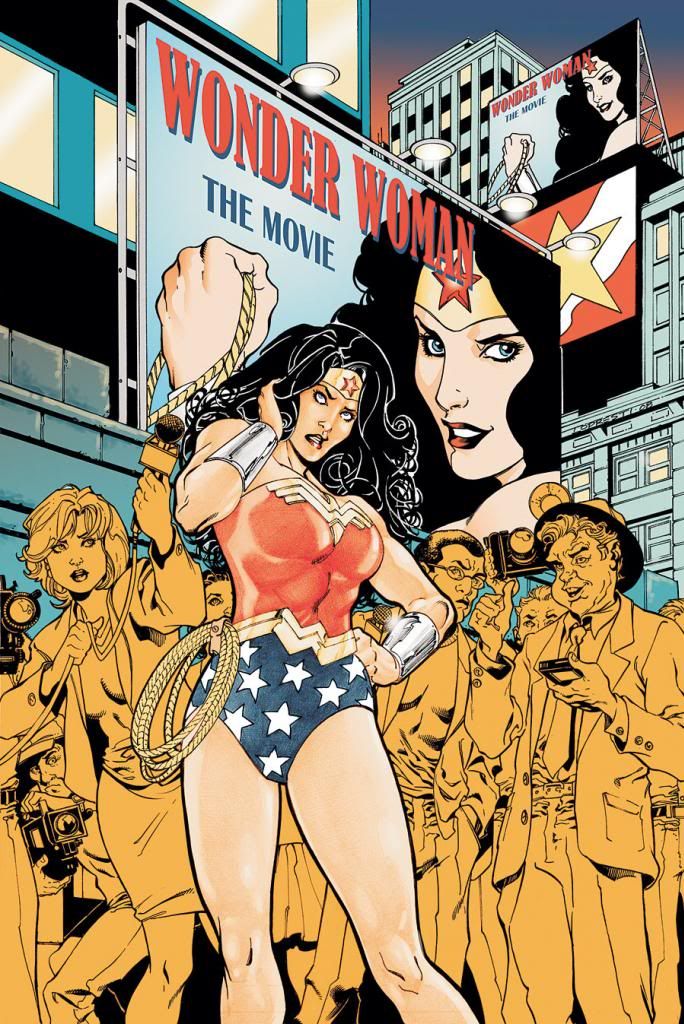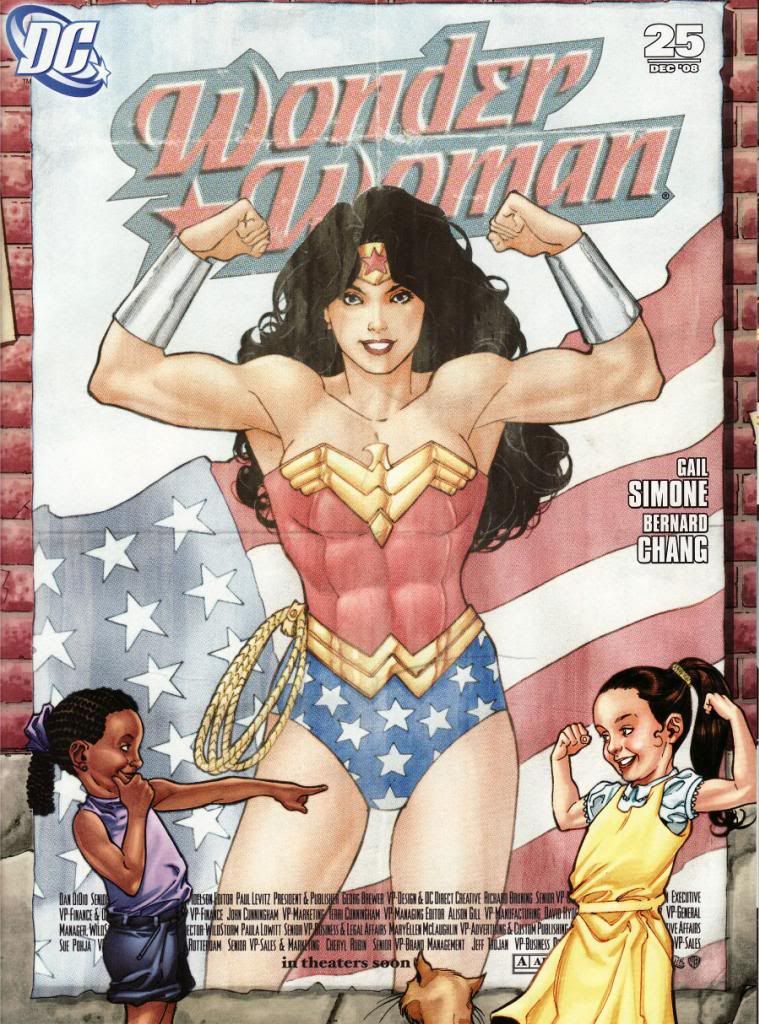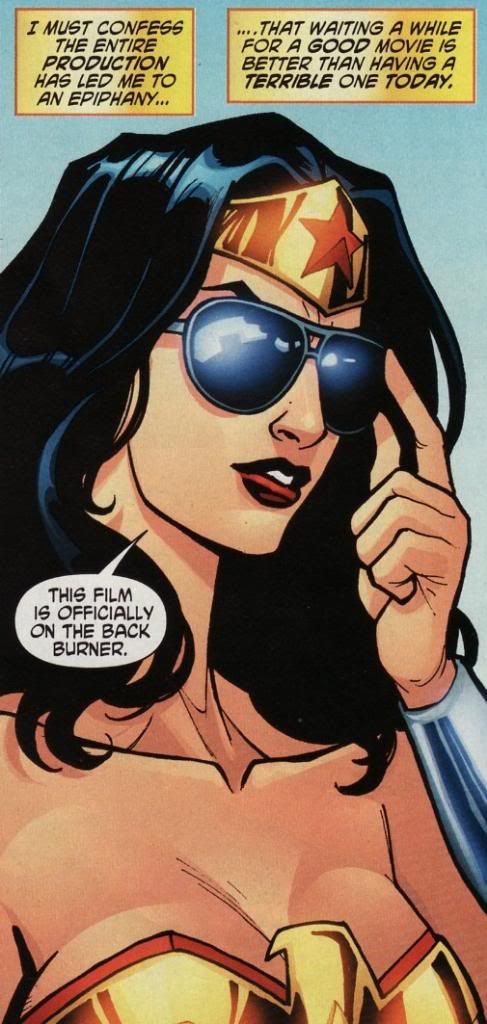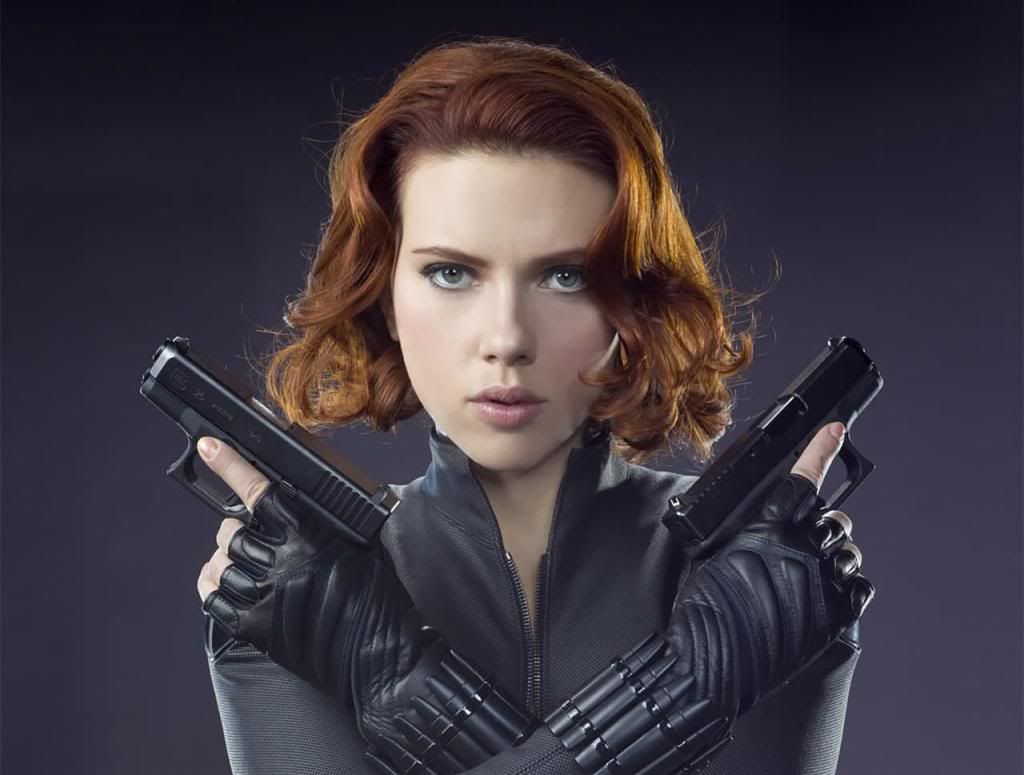 |
| Aaron Lopresti and Hi-Fi |
(Note: Contains spoilers for Man of Steel and the Dark Knight trilogy.)
Every
time a new superhero film comes out, someone will inevitably publish an
article asking why a live-action Wonder Woman film has never been made.
With the recent release of Man of Steel, this question has again been raised, and this time, some vague answers have actually been given.
For
the most part, these answers have been as promising as vague,
noncommittal, unofficial assurances can be. David S. Goyer, the
screenwriter responsible for Man of Steel
and all three of Christopher Nolan’s Batman films, was recently asked about rounding out his portfolio with the third member of DC’s Trinity:
“I think Wonder Woman is a very difficult character to crack. More
difficult than Superman, who is also more difficult than Batman. Also, a
lot of people in Hollywood believe that it’s hard to do a big action
movie with a female lead. I happen to disagree with that. But that tends
to be the prevailing wisdom. Hopefully that’ll change in the next few
years.” A few days ago, The Wrap reported that Warner Bros. is planning to make Wonder Woman the focus of a film following the release of the fabled Justice League movie. There is also further evidence of the
studio’s interest in getting a Wonder Woman-focused project off the
ground in their repeated attempts to make the character work in a
television show. While the 2011 attempt proved disastrous, plans are
still in the works to prepare a series for the CW, whose president, Mark
Pedowitz, has stated, “We do not want to produce something that doesn’t
work for that particular character -- it is the trickiest of all the DC
characters to get done.”
That’s
precisely the problem: it’s hard to get Wonder Woman right,
particularly when there are hundreds of millions of dollars on the line.
My solution? Don’t try.
 |
| Aaron Lopresti |
This
may seem like a shocking assertion to be made by a comics fan who runs a
blog all about strong female characters. By all rights, I should be the
first person in line for a Wonder Woman film, bracers on my forearms
and the double W emblazoned on my chest. And I will be, when the right
time comes, but now is not that time. (Neither is 2017, which is the
earliest we can hope to see the film released.) In fact, while this may
be a good time for Diana of Themyscira to take another crack at
television, it is the worst possible time for her to break into the
Man’s World that is mainstream Hollywood cinema.
Before you pelt me with fruit and force me to perform my own version of bullets and bracelets, let me explain.
Reason #1: This is not the creative team we are looking for.
Christopher Nolan, the director of the Dark Knight trilogy and producer of Man of Steel,
makes dark, overly realistic superhero films with fairly flat,
lacklustre female characters. He’s all about the male “lonely god”
figure. Wonder Woman, by contrast, is both a complex woman and a
character of community.
Zack Snyder, who directed Superman’s latest foray, previously made Watchmen, which suffered from being an almost too accurate adaptation. He made up for that dedication to getting things right by getting Superman all wrong, namely by advocating for Kal-El to murder Zod, despite the fact that this goes against everything that the character stands for. Snyder also wrote and directed Sucker Punch, which is enough reason to keep him far, far away from Diana.
As
the writer of all four of the aforementioned Batman and Superman films,
David S. Goyer is both clearly not the person we want to write the
Wonder Woman movie, and the person who will ultimately get tapped for
the job (if it doesn’t go to the writers of the Green Lantern movie that
flopped). This is beyond concerning, considering the fact that Goyer
said himself that Wonder Woman is more difficult to write than Superman.
Keep in mind that Goyer gave us a Superman who snaps his enemies’
necks, willingly fights said enemies in densely populated areas with no
concern for the humans he purports to want to save, and, perhaps worst
of all, doesn’t engage in witty, sarcastic banter with Lois Lane (who
knows his identity almost from the outset). It was bad enough when Goyer
and Nolan ignored decades of sidekicks to make Batman the hero who
works alone, but completely disregarding fundamental aspects of
Superman’s character is unforgivable.
If this is what they do to Superman, imagine what they would do to Wonder Woman, who snapped a man’s neck in the same issue where she was punched from outer space to Earth, and prayed not for her own safety, but for a landing that caused no human casualties. The complexities of her character would be lost on a creative team that fails to grasp even the basics of the Big Blue Boy Scout.
Reason #2: A failure will put female superhero films on hold for years, if not decades.
If
you go to a multiplex this summer, you will see ample evidence that
Hollywood doesn’t need an excuse not to make a film about women.
Consider the fact that, following the release of The Avengers
and the near universal praise of the Black Widow character, Marvel and
Disney decided to make sequels to all of their male superhero
franchises, as well as a Guardians of the Galaxy film, instead of going with the more obvious choice of What Happened in Budapest Or, Why Natasha Romanoff is More Compelling Than Yet Another White Dude. Because of a (very short) string of terrible woman-led superhero movies, including Catwoman and Elektra
(nine and ten percent on Rotten Tomatoes, respectively), we need an
unqualified hit to show that superheroic women can sell tickets, and a
stand-out in an ensemble film apparently isn’t enough.
What complicates the situation further is the fact that Wonder Woman is the
female superhero. When you ask a person who doesn’t read comics to name
a woman superhero, Diana’s is likely the first name that will come up.
She’s just about the only woman familiar to the masses whose alter ego
isn’t a riff on a previously established male hero. She’s the one woman
who has to be on the Justice League roster for the general audience to
consider it complete. Because of this, she is also the greatest risk.
If
a poorly made film featuring a minor female superhero is a box office
flop, Hollywood executives will claim that audiences don’t want to see
women donning capes and tights and fighting crime. We will know better,
and dozens of articles will be written explaining the real reasons
behind the failure. Eventually, someone might try again. However, if a
Wonder Woman movie fails, especially one made by the current “dream
team,” executives will have a more legitimate reason to shy away from
super-powered ladies. If even the biggest name can’t draw in the crowds,
why try?
It’s not terribly sound logic, but it’s the logic that will likely be applied.
Solution
I
had initially planned to provide more reasons, but it really does boil
down to those two: a failure to do Wonder Woman well would have
disastrous results, and the creative team most likely to be assigned the
job seems to lack the capacity to do the character well.
 |
| Kano and Stefano Gaudiano |
This
brings me to my proposed solution: DC/Warner Bros. and Marvel/Disney
should make a bunch of superhero movies starring women, using creative
teams that know, love, and understand the characters. If the studios are
concerned that they won’t make enough money, they should make the first
few films with smaller budgets and let the audience prove that they are
willing to pay. In the age of Kickstarter and the Facebook campaign to
get people to see Bridesmaids,
we are well aware that our dollars act as votes in favour of the
production of similar content. If enough of us pay to see movies about
female superheroes and let executives know that we saw those movies
specifically for those women, we make making those films worth their
while.
I
also think that the studios should capitalize on the franchises they
already have, not by adding sequels starring Yet Another Straight White
Guy, but by fleshing out the universe. Marvel has already grasped this
idea, and DC should follow their lead. Christopher Nolan is done with
Batman, but that doesn’t mean that his Gotham can’t be used to tell the
stories of people like Helena Bertinelli or Cass Cain. The presence of
an already established Commissioner Gordon gives Warner Bros. the
opportunity to create two new franchises: Batgirl and Gotham Central.
Although The Dark Knight
suggests that Gordon’s son was more profoundly affected by the family’s
encounter with Batman, it wouldn’t take much to show how the same event
influenced his daughter, Barbara, the Gordon offspring we already know
and love. In a film trilogy, we could follow her from the beginning of
her career as Batgirl, through the shooting that left her partially
paralyzed, and finish with the establishment of the Birds of Prey.
Like Agents of S.H.I.E.L.D., Gotham Central would be a television spin-off of a successful franchise. The series could take place just after the events of The Dark Knight Rises,
when Batman’s sudden absence drives the GCPD to shift the Major Crime
Unit’s focus exclusively to the criminal activities of the Caped
Crusader’s rogues gallery. We would see Robin finding his footing from
the perspective of the officers who knew his predecessor, and we would
watch Renee Montoya’s development from a police officer to a superhero
over the course of the show.
 |
| Bernard Chang |
My
last suggestion is to tell diverse stories in order to attract diverse
audiences. An indie-style film about Batwoman -- a gay, Jewish former
West Point cadet kicked out under DADT -- would sell very well, and it
wouldn’t require the entire population of the United States to see it to
make money. The Marvel comic, Runaways,
featuring a teenaged cast full of racial and sexual diversity -- not to
mention four girls in its original line-up -- was on its way to being
made a few years ago, and it’s time for it to get the Hollywood
treatment (sans the usual whitewashing and fetishization of queerness). A
white, male, cisgender, heterosexual hero may have a whole host of
abilities, but he doesn’t have the power to satisfy every kind of
viewer.
So,
no, I don’t think we need a Wonder Woman movie yet. I think that we
need to prove to the Hollywood money-making machine that people want to
see women saving the world while wearing slightly ridiculous outfits. I
think we need to show every naysayer that women are capable of being
more than love interests who play second fiddle to their saviour
boyfriends. And then, when we have proven that women are every bit as
heroic as men, that’s when we make Wonder Woman, because that’s when
we’ll be ready to tell her story right.

No comments:
Post a Comment